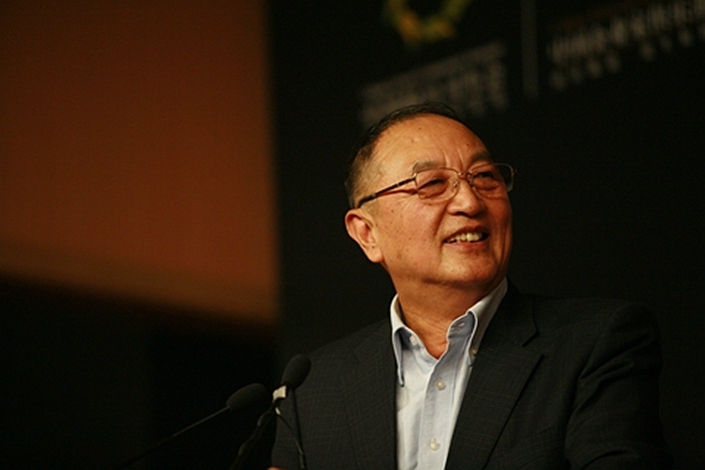Exclusive: Lenovo Co-Founder Set to Retire

Liu Chuanzhi, who 30 years ago founded a company in a Beijing workshop that would go on to become global PC-maker Lenovo, will step down from his role as chairman of Lenovo’s parent this week, a source close to the company told Caixin.
Now 75, one of modern China’s earliest high-tech entrepreneurs and a man sometimes called “China’s godfather of entrepreneurs,” will hand over the reins of the company to a younger generation as he moves into a more advisory role, the source said, speaking on condition of anonymity pending an official announcement. He will resign as chairman and executive director of Lenovo Group Ltd.’s parent Legend Holdings Corp.
As part of the transition, Zhu Linan, 57, will also resign as Legend Holdings president, but will continue as a director of the company. Zhu will also continue as chairman of Legend Holdings’ unit Legend Capital, but won’t hold any other offices. The chairman’s job at Legend Holdings will be taken over by Ning Min, who has held a series of jobs since joining the company in 1991, including senior vice president.
Liu was among the first generation of China high-tech entrepreneurs who emerged shortly after the country began its experiment with market economics with the launch of its reform era in 1978. Others from that group include Ren Zhengfei, founder of Huawei Technologies Co. Ltd., who was also born in 1944.
Liu was just 40 when he and 10 colleagues received the then-princely sum of 200,000 yuan ($28,600) from the computing division of the Chinese Academy of Sciences to start up the company that would eventually give rise to Lenovo in a 20-square-meter (215-aquare-foot) workshop 1984.
“My original intent behind starting a business was that I wanted to try. I was already quite capable,” Liu told Caixin in a 2015 interview. “Because I had been locked up in a cage for a long time, it wasn’t easy for me to forge ahead.”
The company started out as an agent selling foreign-made PCs and as a developer of a Chinese character software system. The founders went on to use money from their businesses to develop their own brand, which was originally called Legend in English. It later changed its name to Lenovo, and burst onto the global stage in 2005 when it purchased the PC business from global giant IBM in one of the biggest overseas technology purchases by a Chinese company at that time. From there Lenovo grew organically and through a series of other acquisitions, and is now in 180 global markets.
The company has gone through several down periods, first as it tried to digest its many global assets and adopt to the global marketplace, and later after making a largely failed foray into the global smartphone space. Liu initially relinquished his job as Lenovo chairman after the IBM acquisition, but then returned to take the position in 2009 when the company was going through a difficult period.
He relinquished the Lenovo chairman’s title again in 2011, and then turned his energy to the current Legend Holdings, which made its own IPO in Hong Kong in 2015.
Within the business community, Liu was known for his interest in helping other young entrepreneurs, a role that earned him his nickname. In that role, one of his most famous moments came when he helped a little-known entrepreneur named Lei Jun with a $4 million investment to help rescue Lei’s software company called Kingsoft. Lei would go on to become a billionaire through his status as co-founder and chief executive at Xiaomi Corp., one of China’s leading homegrown smartphone-makers.
“When Lenovo was on the way up — when I felt that the team was well-adjusted and mature — that was when I should have quietly exited and called it quits,” Liu told Caixin in the 2015 interview.
Contact reporter Yang Ge (geyang@caixin.com; twitter: @youngchinabiz)

- PODCAST
- MOST POPULAR




